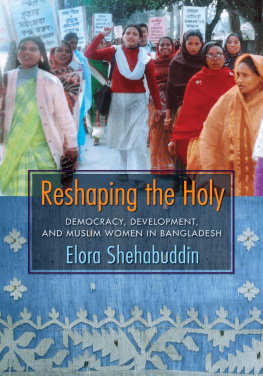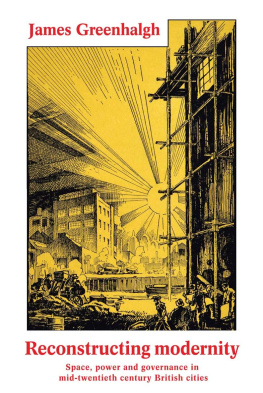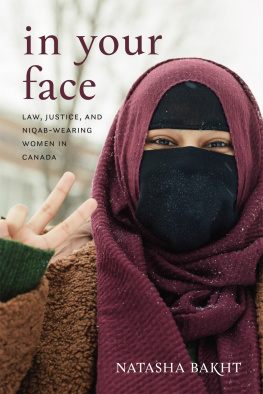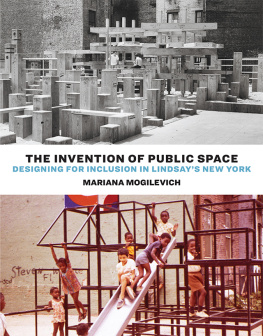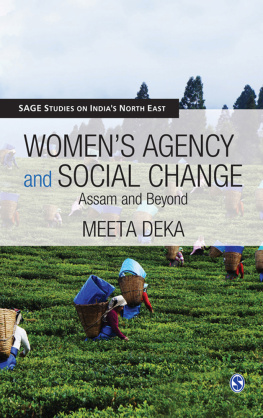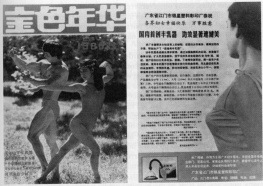Selda Tuncer is Assistant Professor of Sociology at Yznc Yl University, Van, Turkey, and teaches courses on gender, the city and feminist methodology. She has worked at the Middle East Technical University, Ankara, where she also completed her masters and PhD degrees. Her dissertation, Going Public: Womens Experience of Urban Public Space in Ankara across Generations between the 1950s and the 1980s, upon which this book is based, was awarded the Young Social Scientists Prize by the Turkish Social Science Association. She has recently been working on an international project to build a counselling centre for asylum-seeker women and children in Van. She has published in both Turkish and English on issues concerning gender and space relations, urban culture, womens history and everyday life in the Turkish context.
A timely and much-needed sociological study! Carefully combining history and the narratives of middle-class women, Tuncer offers us a nuanced analysis of womens perceptions and experiences of urban public space in their everyday lives. She enriches our understanding of the socio-historical contexts in (re)shaping public space in Turkey and contributes to the discourse on gender, modernity and public space.
Margaret Abraham, Professor of Sociology, Hofstra University
The promise of grounded research resides in challenging well-trodden arguments to open up new avenues of thinking beyond our received assumptions and categories. Tuncers book succeeds in fulfilling this promise. Her research is based on the lived experiences of three generations of women, as they negotiate the boundaries between the worlds of the public and the private. She offers a fascinating glimpse of daily life in Ankara, between the years 1950 and 1980, using family albums as source materials along with in-depth interviews. At the same time, she succeeds in moving beyond conventional understandings of the public/private divide, to discuss the multiple and shifting boundaries between them. Last but not least, her research highlights the need for a historical understanding of womens experiences, without reducing them to objects of a Republican modernity project. By focusing on the micro-politics of everyday life, she succeeds in questioning dominant narratives of structural and institutional change which ignore the social agency of women in shaping public space.
Aye nc, Professor, Sabanci University
How and in what ways women have participated in modern public life has always been an important question both in theoretical and practical terms within feminist scholarship. The aim has been to understand the social position of women throughout the process of modernity in which, without the public presence of women, none of its promises could be actualised. This book is a pioneering attempt to explore the ways in which the public sphere, and the place of women within it, gained its meanings outside of Westernised-yet-non-Western social contexts where women were engaged in a long process of negotiation across the generations by not only blurring the boundaries between the public and the private, but also challenging the established views about the public and private divide. Based on well-informed, detailed ethnographic work, oral history methods and personal visual archives, this book tells the story of what took place in a secular-yet-Muslim context, at the heart of an arduously modernising nation-state, in the capital of Turkey, Ankara, in an eloquent way. It provides a valuable resource for those who want to understand how women managed to go outside of the home in the modern Middle East.
Aye Saktanber, Professor of Sociology, Middle East Technical University
This book provides an illuminating perspective about women, modernity and the urban experience in Turkey between 1950 and 1980. As an in-depth and well-conceived source, the book provides empirically and theoretically rich chapters on women and public space in Turkey, which is at the centre of intellectual and political debates of global significance. This lucid and comprehensive book is essential reading for students and researchers in gender and cultural studies, Turkish politics, and Middle Eastern studies.
Baak nce, Assistant Professor, Bilkent University; author of Citizenship and Identity in Turkey: From Atatrks Republic to the Present Day (I.B.Tauris, 2012)
Published in 2018 by
I.B.Tauris & Co. Ltd
London New York
www.ibtauris.com
Copyright 2018 Selda Tuncer
The right of Selda Tuncer to be identified as the author of this work has been asserted by the author in accordance with the Copyright, Designs and Patents Act 1988.
All rights reserved. Except for brief quotations in a review, this book, or any part thereof, may not be reproduced, stored in or introduced into a retrieval system, or transmitted, in any form or by any means, electronic, mechanical, photocopying, recording or otherwise, without the prior written permission of the publisher.
Every attempt has been made to gain permission for the use of the images in this book. Any omissions will be rectified in future editions.
References to websites were correct at the time of writing.
Library of Modern Turkey 25
ISBN: 978 1 78453 752 4
eISBN: 978 1 83860 988 7
ePDF: 978 1 83860 989 4
A full CIP record for this book is available from the British Library
A full CIP record is available from the Library of Congress
Library of Congress Catalog Card Number: available
This book originated as a DPhil thesis submitted to the Middle East Technical University in April 2014. Considering both the writing process of the dissertation and its publication, it is certain that a work of this nature cannot be accomplished alone, and there are a great many teachers, mentors and friends that have been part of this study. Before mentioning them, I would like to begin by expressing my heartfelt thanks to the women who allowed me into their lives and shared their life stories with me. Without them, this study would not have been possible. Although I cannot use their real names, I thank each of them individually. Their names and precious stories will always be with me.
I wish to express my gratitude to my supervisor Prof. Dr Aye Saktanber for her guidance and critical insights. Particularly, her support was crucial in the course of conducting the field research. I would also like to thank Prof. Dr Gven Arif Sargn, Prof. Dr Yldz Ecevit, Assoc. Prof. Didem Klkran and Assoc. Prof. Umut Bepnar, who composed my dissertation committee and provided valuable comments and excellent suggestions. I also owe my gratitude to Prof. Dr Liz Stanley for her mentoring throughout the course of my studies at Edinburgh University. I am indebted to her for her methodological insights and generous support, and most importantly, her feminist companionship. I am also thankful to Prof. Dr Liz Bondi and Prof. Dr Jane Jacobs for taking the time to hear my work, and for their valuable feedback.
I wish to mention here one particular event that had a great influence on my work: the 14th International Cultural Studies Workshop on Urban Cultures in 2009, organised by the Centre for Studies in Social Sciences, Calcutta at North-Eastern Hill University. This one-week dissertation workshop in Shillong, India presented me with the opportunity to meet distinguished scholars and enthusiastic young researchers from around the world. The experience greatly expanded and transformed my scholarly perspective by introducing me to prominent examples of postcolonial and South Asian literature. Among the many distinguished participants I met at this gathering, I express my gratitude particularly to Prof. Dr Nivedita Menon, an excellent discussant, for her careful reading of my research proposal and her insightful comments and warm support; and to Prof. Dr Janaki Abraham, for her intellectual curiosity and energy. I am also thankful to the SEPHIS Programme for giving me the opportunity to participate in such a wonderful workshop.


